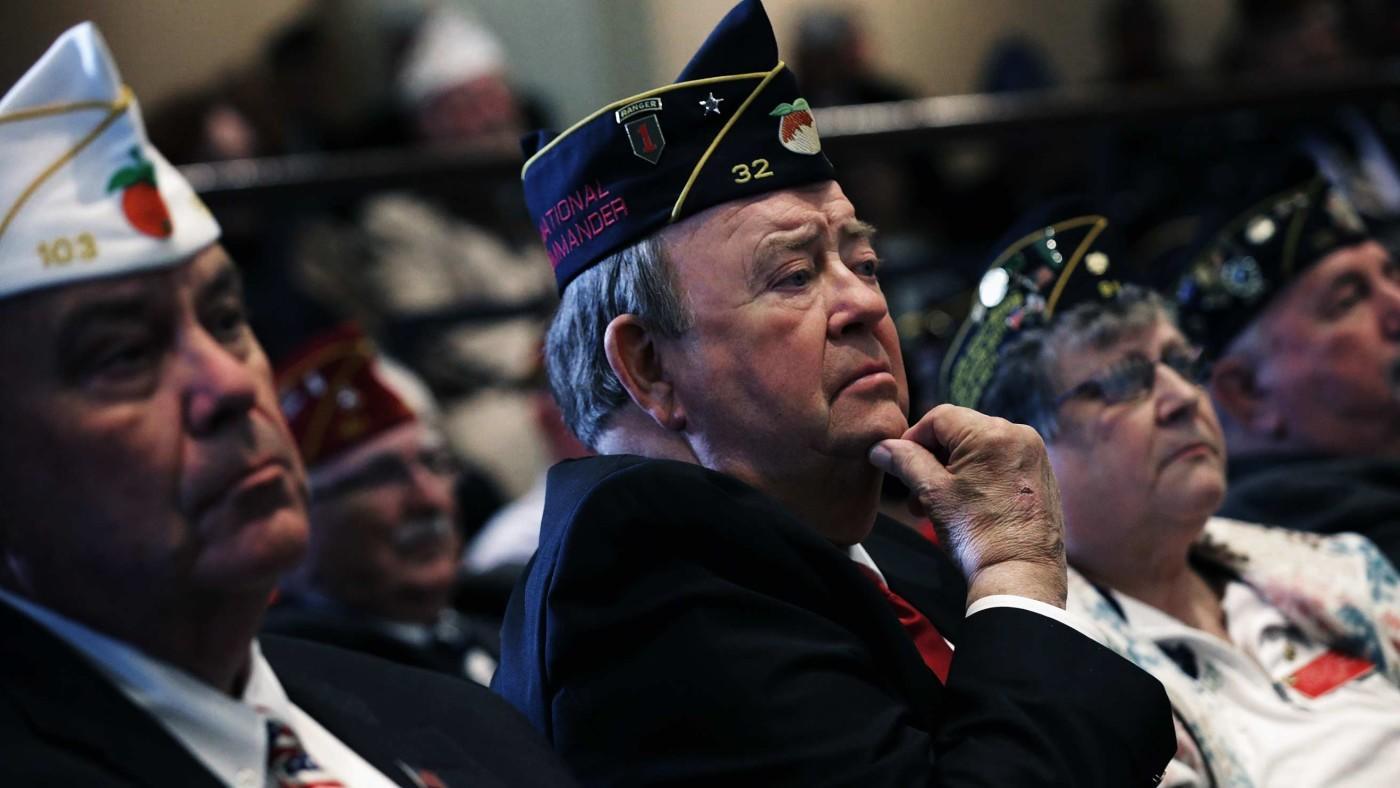The presidential campaign issue of veterans health care is worth watching, even if you aren’t a veteran or closely linked to one.
The matter came up at both of the two most recent presidential debates. It’s in the news not only because of the scandal over long wait times for care at Veterans Administration hospitals and the subsequent cover-up, but because the differences between Republicans and Democrats on the issue illuminate a stark ideological divide.
At the Democratic debate on February 4, moderator Rachel Maddow asked: “What’s your argument that the V.A. should still exist and should not be privatized?”
Hillary Clinton responded, “I’m absolutely against privatizing the V.A. … this is another part of the Koch brothers agenda. They’ve actually formed an organization to try to begin to convince Americans we should no longer have guaranteed health care, specialized care for our veterans….I will fight that as hard as I can. … let’s fix the V.A., but we will never let it be privatized, and that is a promise.”
Bernie Sanders, a past chairman of the Senate Committee on Veterans’ Affairs, replied, “Secretary Clinton is absolutely right, there are people, Koch brothers among others… who want to privatize it…. We’ve got to strengthen the V.A. We do not privatize the V.A.”
On February 6, the Republican presidential candidates dealt with the same question in their own debate.
Dr. Benjamin Carson said that veterans “should have health empowerment accounts that are subsidized so they can go to any medical facility and be taken care of. They can go to a V.A. if they want to.”
Jeb Bush said, “I totally agree that we need to give veterans more choices. A veterans’ card to be able to go to a private provider will enhance the quality of the service inside the Department of Veterans Affairs.”
Marco Rubio said, “The portability part of it is incredibly important. Veterans should be able to take their V.A. benefits to any hospital or any doctor they want to go to. When I am president of the United States, veterans will be able to take their benefits to any hospital or doctor that they choose.”
These are honest ideological differences. But Republicans and Democrats disagreement on this issue might also involve interest group politics. Non-government doctors, health insurance companies, and for-profit hospitals — often, though not exclusively, aligned with Republicans — would surely like a piece of the roughly $60 billion a year that the federal government spends providing veterans’ health care through dedicated, government owned and operated Veterans Administration health care facilities.
On the Democratic side, the American Federation of Government Employees, a reliable Democratic interest group, represents 220,000 employees at the Veterans Administration. The union doesn’t want those employees to lose their jobs to non-union private sector competitors.
Ideological differences can’t be underestimated, however. Veterans’ health care is not the only issue where Democrats want a service provided by unionized government employees, while Republicans want to give individuals a choice. The same pattern shows up in education, where most Democrats favor traditional public schools while most Republicans are more open to private school vouchers.
Republicans don’t trust the government; they think it’s a bloated monopoly run by overpaid, inefficient bureaucrats. Democrats don’t trust the private sector; they suspect overpaid corporate executives just want to siphon excessive profits out of government programs. Neither party is perfectly consistent about this; on some social issues Republicans aren’t comfortable with individual choice, and some Democrats don’t mind portraying the Pentagon as a bloated, inefficient bureaucracy.
Politicians have to rely on guidance from the Constitution and, one hopes, from the voters, or the individuals receiving the services. Veterans may not now have a choice of where to go for health care. But they will have a choice in November’s election, as will we all.


